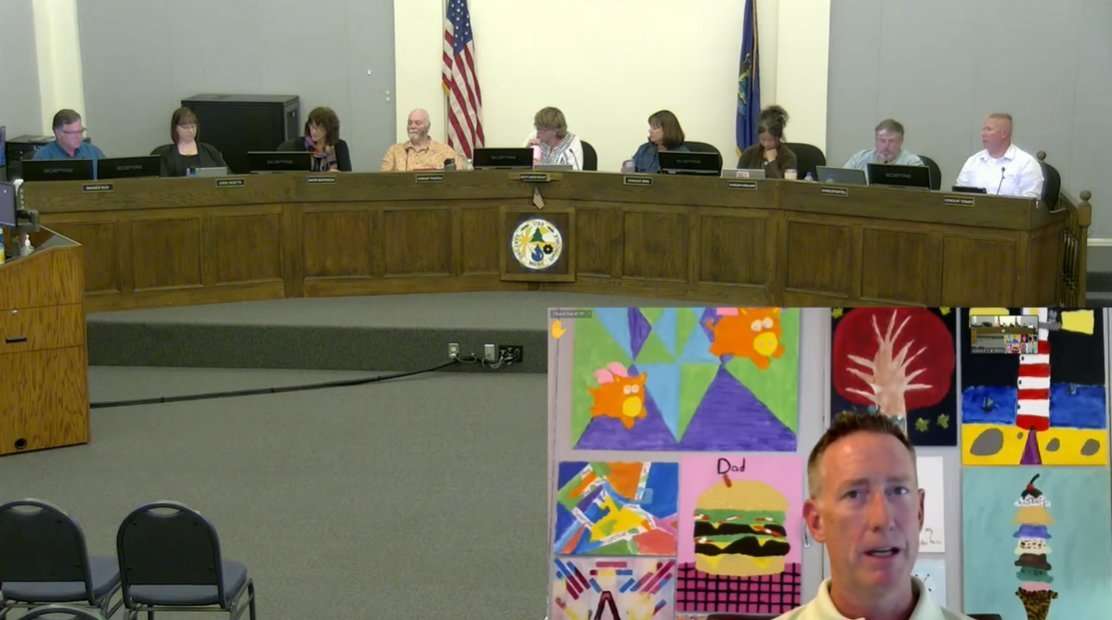Charter Amendments Finalized for November Vote

At its meeting on August 16, 2022, the City Council reviewed the final language of proposed amendments to the City Charter, and voted to put them on the ballot in November.
Budget Committee: Amendment #2 would eliminate the Budget Committee and replace all references to it in the Charter with the City Council. It would maintain the minimum 4% Capital Investment Program in the current Charter, with a minimum of 50% of the CIP dedicated to non-rolling stock infrastructure, but would allow the Council to reduce that amount in the future. It would also allow the Council to expend up to $1 million without voter approval in an emergency situation.
This was the only proposed amendment that received any public comment. Lance Hoenig, who served as Chair of the Charter Review Committee, and in the past as Budget Committee Chair, spoke for a few minutes. He thanked the other members of the Charter Review Committee for their hard work in developing their recommendations. He pointed out that the Committee’s proposal to expand the Budget Committee to 17 members, and to ramp up the CIP to 7% of the budget both came from the City Manager. Mr. Hoenig said raising the CIP to 7% was intended to tie the hands of the Council, so that future Councils wouldn’t slash road construction funds to balance the budget. “That’s exactly what we did for many years, and is the reason our infrastructure deteriorated so badly,” he said. With regard to the Budget Committee, he said “I would like to have seen more debate about why the Mayor’s solution [to abolish the Budget Committee altogether] was superior to ours, which included all stakeholders, or at least a discussion and vote on our recommendation before moving on to hers.” He said it should have been made clear before Charter Review Committee members agreed to serve that the Council would only accept abolishing the Budget Committee. “I am happy to help if help is genuinely wanted, but time is my most precious resource, and I try not to put myself in positions where it’s wasted,” he added.
Mr. Hoenig also said he advocated for returning the public vote on the municipal budget, which several members of the Charter Review Committee opposed. However, there was some question during the Review process whether a change of that magnitude could be done through a simple amendment, but would instead probably require a full Charter Revision, which is a more rigorous legal process.
Mayor Anne-Marie Mastraccio said she had been hopeful the Charter Review Committee would come back with a recommendation that was an improvement on the current system, but instead she felt it was worse. “It is time to put this to rest and let the voters decide,” she said.
Councilor Becky Brink clarified that the road budget in the past was cut by the Warrant Committee and Town Meeting, not the Town Council. She added that the proposal to expand the Budget Committee to 17 people was too large a number to work.
In reference to calls to restore the citizen vote on the budget, Deputy Mayor Maura Herlihy said she gets upset about the notion that people who choose to seek elected or appointed office represent the City and not the people. “That is completely incorrect. We represent the people of Sanford…I represent the taxpayers,” she said, and added “The main problem in this community is the distrust of how money is spent.”
Councilor Jonathan Martell said that, after speaking with constituents, he would not support eliminating the Budget Committee, but hoped that adjustments could be made to the process instead that would involve more public participation.
Councilor Michael Termath said he agreed that 17 people is way too large, but that taxpayers feel their voice is not heard and there should be more citizen participation.
Councilor Ayn Hanselmann apologized to Mr. Hoenig that there wasn’t more conversation on the Charter Review Committee’s recommendations. She pointed out that Councilors are often begging friends and family members to be on the Budget Committee because so few people volunteer. In response to Councilor Termath, she said citizens have to take the initiative to become engaged. “We have every opportunity for public speaking at every meeting,” she said, but very few people take advantage of it. She added that City Councilors, working many hours year-round on the City’s financial matters, are engaged in a way that Budget Committee members can never be.
Councilor Stackpole, who was on the Charter Review Committee, said very few members of the public attended its meetings either in-person or on Zoom, and only seven people submitted written comments. “I appreciate these people’s input…[but] if this is such an important issue, why isn’t there a great deal of public engagement on this?” he asked. With regard to the citizen vote on the municipal budget, he said “Ten years ago we built into the existing Charter the opportunity for people to come out and vote,” and set “a fair threshold” for keeping that system, but the threshold was not met so the option sunsetted.
At this point there was some back-and-forth between Councilor Termath and Deputy Mayor Herlihy, and Mayor Mastraccio had to bang her gavel to restore order. She wrapped up the discussion by saying, “I trust voters to make the decision they want.”
The Council voted 5-2 to put the proposed amendment on the ballot, with Councilors Martell and Termath in opposition. If a majority of voters in November vote against the amendment, the Budget Committee will stay the way it is now, comprised of three members of the Council and four members of the public.
The Council voted unanimously to place the following proposed amendments on the ballot in November:
Emergency Appropriations: Amendment #2A is the emergency appropriation as a separate vote, in case the more controversial Budget Committee amendment doesn’t pass.
Assessor Appointment: Amendment #3 allows the City Manager to appoint the City Assessor along with other Department Heads, subject to Council approve. This is viewed as correction of an oversight in the previous Charter.
Planning Board Quorum: Amendment #4 requires four members of the Planning Board to be present to constitute a quorum. Currently, only a majority of those present is required for approval of any business.
Definitions: Amendment #5 adds several definitions to the Charter, including City Office, Department of Education, Ordinance and Resolution.
If you’re wondering what happened to Amendment #1, that was the proposal to strike language related to the public’s ability to vote on the municipal budget. The Council decided at a previous meeting not to put this amendment on the ballot, with the concern that it would be confusing to voters who might think they were actually voting to restore the Budget vote instead of just to clean up the language.
The Council was also given two options for Amendment #7, which would change the term of the Mayor. Mayor Mastraccio declared she did not want to put either option on the ballot, and none of the Councilors disagreed, so neither will appear on the ballot in November.
Election Day is November 8. You may request an absentee ballot here or by calling the City Clerk’s office at 207-324-9107.
Subscribe to our twice-weekly email newsletter and never miss a story! Visit sanfordspringvalenews.com/subscribe/ to sign up.






